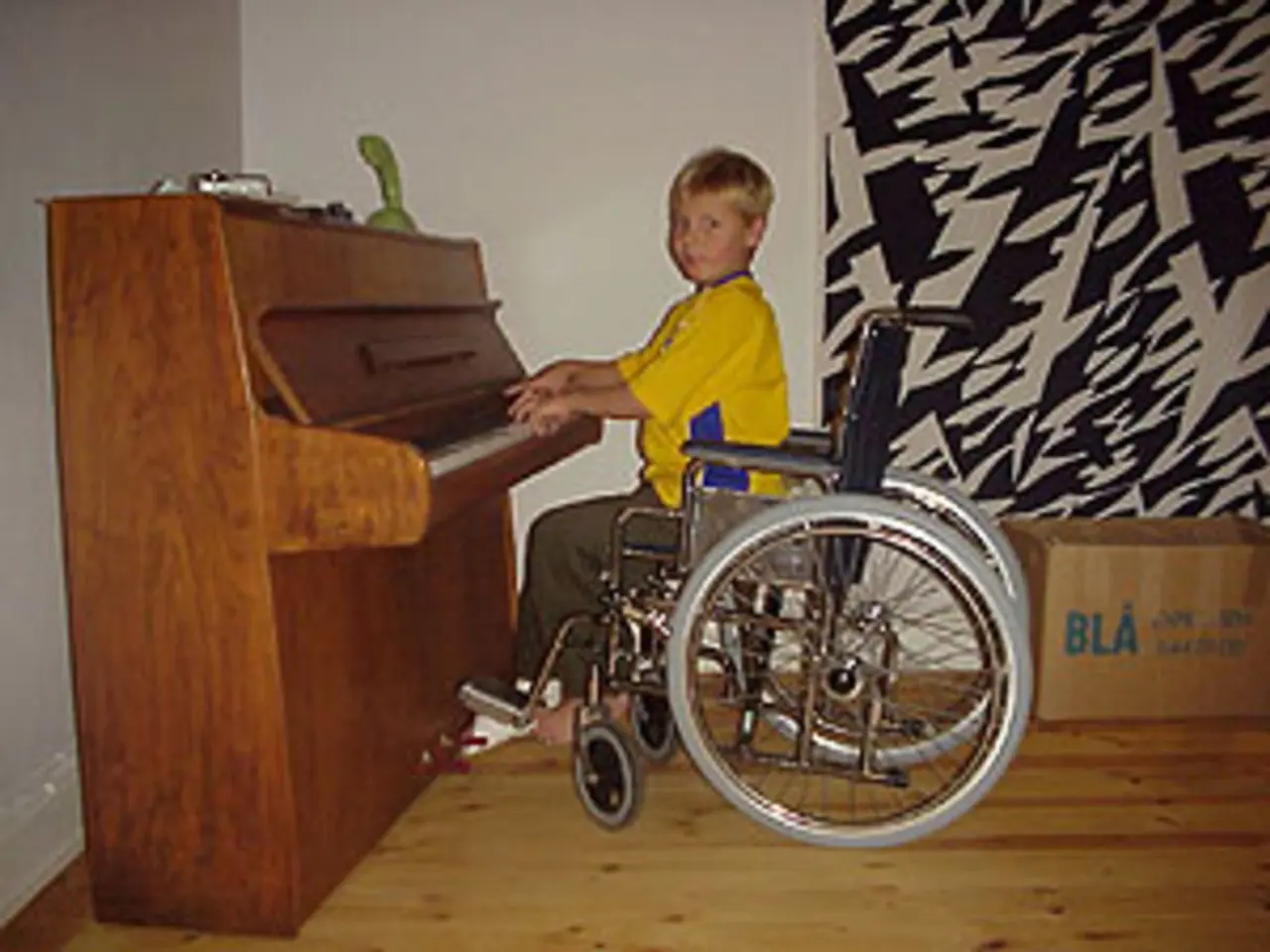Autism-Related Conditions: Insights and Explanations
Autism Spectrum Disorder (ASD) is a neurodevelopmental condition that often co-occurs with various health conditions, including mental health conditions, medical conditions, genetic conditions, and neurodevelopmental disorders.
One of the most common mental health conditions observed in autistic individuals is anxiety disorders. These frequently include generalized anxiety, social anxiety, and specific phobias. Depression and affective disorders also occur frequently in this group. For instance, a 2018 study found that 37% of autistic individuals had been diagnosed with a depressive disorder at some point in their life.
Bipolar disorder is more likely to occur in autistic people, with them being more likely to experience it than the general population.
Tuberous sclerosis, a rare genetic condition that causes noncancerous tumors to grow on vital organs, may affect about 50% of people with tuberous sclerosis according to some studies. It can occur alongside autism, and in some cases, it could play a role in causing autism.
Epilepsy is more common in autistic people than in the general population, and may affect about 25% of autistic individuals. Having an intellectual disability is a risk factor for epilepsy in autistic people. Autistic children who experience seizures may also have sleep difficulties and behavior problems.
Intellectual disabilities can impact reasoning, planning, and abstract thinking, and there's a lot of overlap between intellectual disability and autism diagnoses. Approximately 80% of autistic children have a co-occurring condition, and almost half may live with another mental health condition or neurodevelopmental disorder.
Anxiety is a common mental health issue for autistic individuals, with about half experiencing persistent worry, social phobia, separation anxiety, or other phobias. GI symptoms, such as constipation and diarrhea, are also common in autistic people, with an average of 46% experiencing GI symptoms. These symptoms can lead to behavioral patterns like hyperactivity, aggression, and self-harm.
GI symptoms in autistic people can be caused by a combination of factors, including medication side effects, sensory or behavioral issues, ARFID or other eating disorders, a sluggish intestinal tract, issues related to metabolism, anatomy, or gut microbiota.
Autistic women may be more likely to experience seizures than autistic men, and eating disorders, such as anorexia and avoidant/restrictive food intake disorder (ARFID), are more common in autistic individuals, particularly autistic women.
Autistic children with ADHD tend to have challenges with executive functioning. Obsessive-compulsive disorder (OCD) is found in about 5% of autistic young people, and when it occurs with autism, it can have a greater impact on a person's social skills.
Sleep disorders, such as insomnia, are more common in autistic individuals, with an estimated 13% living with sleep disorders. Autistic people with depression may exhibit insomnia or restlessness rather than sadness, and have a higher risk of experiencing suicidal thoughts and dying by suicide than the general population.
Fragile X syndrome, a genetic condition that is often linked to autism spectrum disorder, causes intellectual disability, delayed development, and specific behavior patterns such as hyperactivity. Around 46% of boys and 16% of girls with Fragile X syndrome are also autistic.
Autistic people are 4 times more likely to experience depression than nonautistic people. Depending on where these tumors develop, they can cause seizures, intellectual impairment, skin issues, kidney disease, headaches, blurry vision, behavioral symptoms like aggression or self-harm, and trouble breathing.
While at one point it was thought that 70% of autistic people had an intellectual disability, it's actually probably closer to 30%. ASD and ADHD can co-occur, and genetics tend to play a role in both conditions.
In conclusion, individuals with autism spectrum disorder often face a variety of health issues, including mental health conditions, medical conditions, genetic conditions, and neurodevelopmental disorders. Understanding these co-occurring conditions is crucial for providing effective support and treatment for autistic individuals.
Read also:
- Peptide YY (PYY): Exploring its Role in Appetite Suppression, Intestinal Health, and Cognitive Links
- Toddler Health: Rotavirus Signs, Origins, and Potential Complications
- Digestive issues and heart discomfort: Root causes and associated health conditions
- House Infernos: Deadly Hazards Surpassing the Flames








